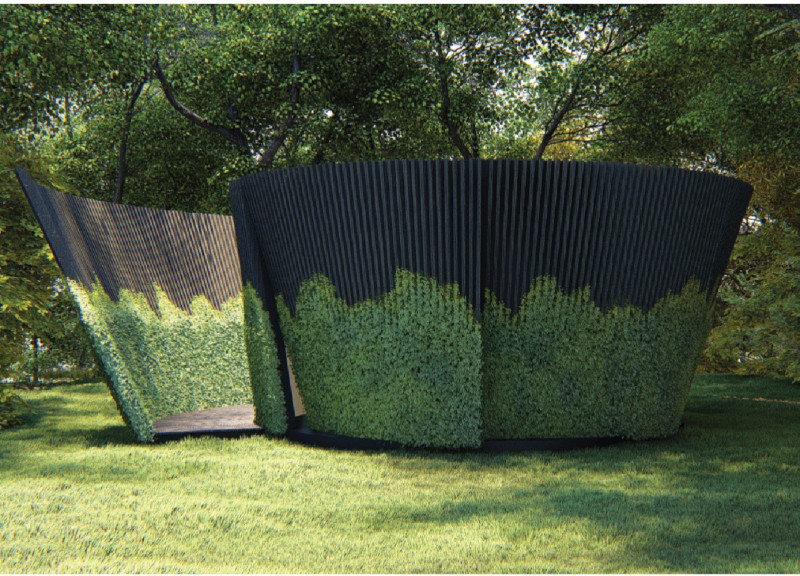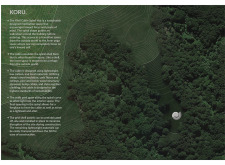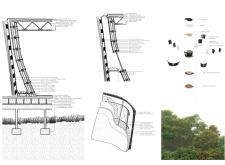5 key facts about this project
The Kiwi Cabin Spiral Hut is designed as a tranquil space for meditation and self-reflection. Set within a peaceful landscape, its structure features a spiral form that leads users from the outside world into an interior meant for yoga and contemplation. The design aims to create a strong connection with nature, providing a place that encourages users to focus inward while feeling enveloped by the environment around them.
Spatial Organization
As users move through the cabin, the spiral shape offers an intentional journey that enhances the experience of entering the space. The design ensures that occupants can immerse themselves in nature, increasing their awareness and connection to their surroundings. This thoughtful arrangement creates privacy while maintaining an open feel and allows for expansive views of the landscape.
Material Selection
The cabin emphasizes sustainability through its careful selection of materials. Sheep's wool insulation provides effective temperature control without harmful off-gassing. The use of cork for the floors adds comfort and durability, making it suitable for practices such as yoga. The structure is built with locally sourced pine and beech wood, which not only lowers the environmental impact but also contributes a warm ambiance that feels inviting.
Functional Features
A fireplace is integrated into the design, adding warmth and serving as both a light source and a gathering point. This feature enhances the atmosphere inside the cabin, inviting occupants to interact and share while still promoting moments of solitude. The fireplace acts as a focal point, generating dynamic light patterns that enrich the meditative experience within the space.
Construction Approach
Using prefabricated grid shell panels, the construction process is streamlined for efficiency. This method reduces disruption to the surrounding landscape and supports environmentally friendly practices. Combining lightweight materials in the design reflects a commitment to sustainability while maintaining a straightforward architectural language.
The Kiwi Cabin Spiral Hut captures a simple, yet profound approach to architecture. Each aspect of the design works together to create a lively yet calming environment that encourages quiet reflection amidst the beauty of nature.





















































